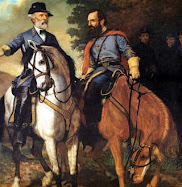Blue Valentine doesn't haunt me, but it should.
The movie has no seams, no joints, no faults in its workmanship that can be seen. Part of that is a function of the movie itself. Its jumps back and forth between the current, dire distress of a marriage and its youthful, hopeful, ebullient beginning could easily derail it; it has to be perfect to pull this off. But it is. The movie shuttles between an emotionally turbulent day in the present and past scenes of a couple's romance. It sounds like cinematic whiplash, but the past and present tightly dovetail to form a textured, poignant picture of their love story. We don't know what happens at the end. The couple may divorce, they may reconcile, we just don't know, but it's a very real, very gritty love story.
Quentin Tarantino gets it--a soundtrack doesn't make a movie, but a good one can really drive home the themes and emotions being acted out on the screen. And this song emerged as the MVP of the soundtrack of Blue Valentine. It's by some group called "Penny & the Quarters," and it has become a serious hit. Strangely, though, no one, except perhaps the singers of this song, have any idea who sung it. The unknown group recorded it, as well as two others songs, as a demo in Columbus, Ohio, some time between 1970 and 1975 for Harmonic Sounds Studio. It was never released until 2004 by Numero Group, long after soul music's peak in popularity. The song's popularity is just too weird to explain--part of me thinks this whole story is a hoax: "Long lost soul record becomes hit song in romantic drama." But stranger, much stranger, things have happened. But the song is perfect for the movie. It is simple, poignant, and spare. And real. It's one female vocal lead, three or four male background vocals, and one accompanying electric guitar. That's it. The crackle of the vintage equipment gives it texture and authenticity, while the obvious youthfulness of its singers give it a hopeful, yearning quality. The song wraps up all the movies themes--love, hurt, hope, uncertainty, inexperience, youth, expectation (and a ton of others, I'm sure)--and delivers them in about two and a half minutes. It's incredible, and the movie, which is masterfully written, shot, and produced, absolutely benefits from its presence.
Yeah, Blue Valentine could be a tad depressing. But the fact that the audience, coming out of the movie, cannot predict the fate of two people in a bad situation gives me, for one, considerable hope. The two leads certainly could divorce (they both carry onerously heavy baggage of their own dysfunctional families), but they could just as easily forge ahead and grow stronger with each other. It details an accidental marriage in a brutally realistic way, and for that, it is worth seeing. And while the picture is not rosy, it is not bleak, either. And that, for me, certainly makes it worth watching.
Why Colonel Sartoris?
Allow me to explain the puzzling title. Colonel Sartoris is William Faulkner's greatest character. He exemplifies those values that his society cherishes, namely tradition, patriarchy, courtliness, and courage. Though modernity's slow march tries to strip him of these things, Sartoris continues to live as he always has, knowing that "the past is never dead. It's not even past." He seeks order in the honorable folkways and mores of his forbears. Let us not forget his example.
Sunday, January 30, 2011
Subscribe to:
Post Comments (Atom)

No comments:
Post a Comment